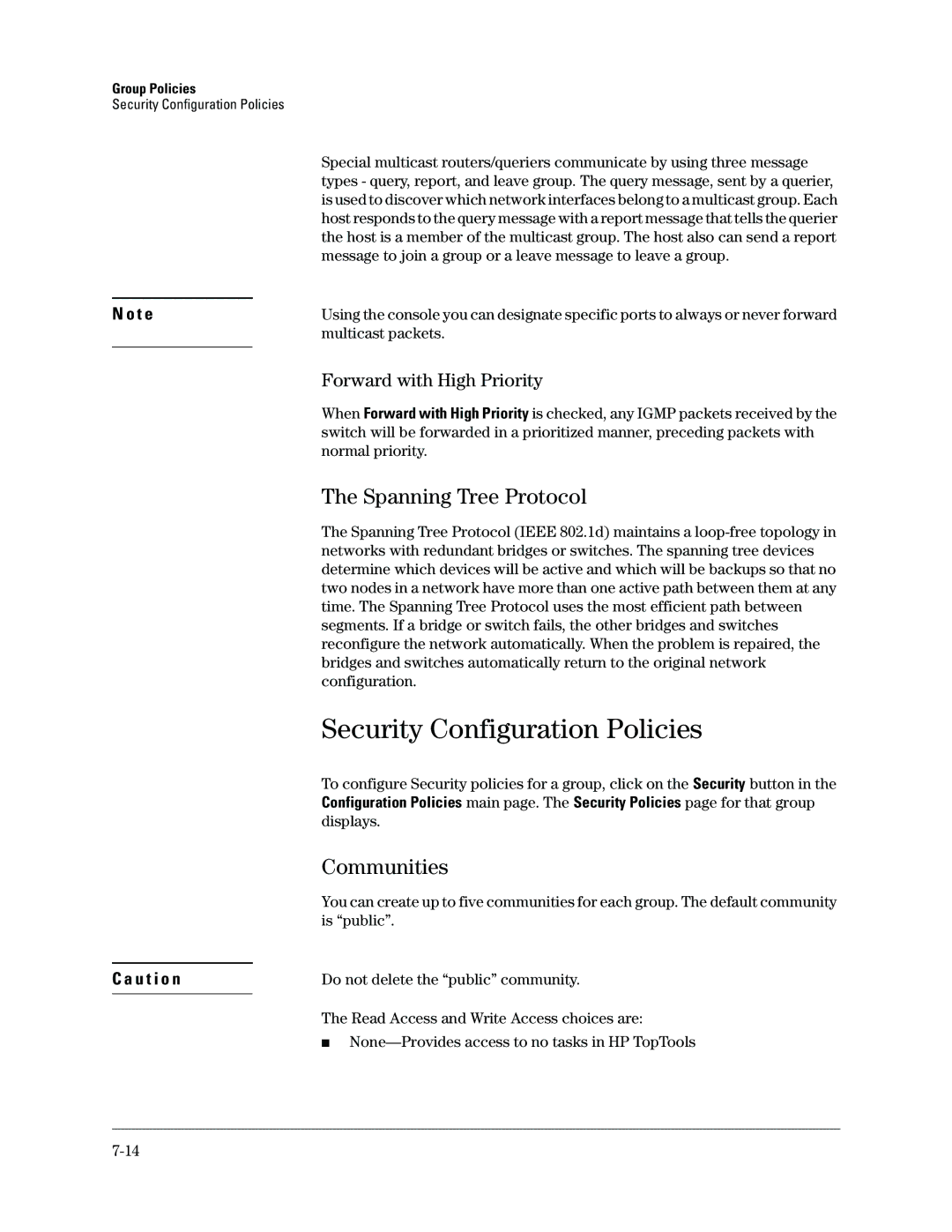
Group Policies
Security Configuration Policies
| Special multicast routers/queriers communicate by using three message |
| types - query, report, and leave group. The query message, sent by a querier, |
| is used to discover which network interfaces belong to a multicast group. Each |
| host responds to the query message with a report message that tells the querier |
| the host is a member of the multicast group. The host also can send a report |
| message to join a group or a leave message to leave a group. |
|
|
N o t e | Using the console you can designate specific ports to always or never forward |
| multicast packets. |
|
|
C a u t i o n
Forward with High Priority
When Forward with High Priority is checked, any IGMP packets received by the switch will be forwarded in a prioritized manner, preceding packets with normal priority.
The Spanning Tree Protocol
The Spanning Tree Protocol (IEEE 802.1d) maintains a
Security Configuration Policies
To configure Security policies for a group, click on the Security button in the Configuration Policies main page. The Security Policies page for that group displays.
Communities
You can create up to five communities for each group. The default community is “public”.
Do not delete the “public” community.
The Read Access and Write Access choices are:
■
